Time to act to help ease stable staff crisis
Jon Lees on moves to boost a troubled industry
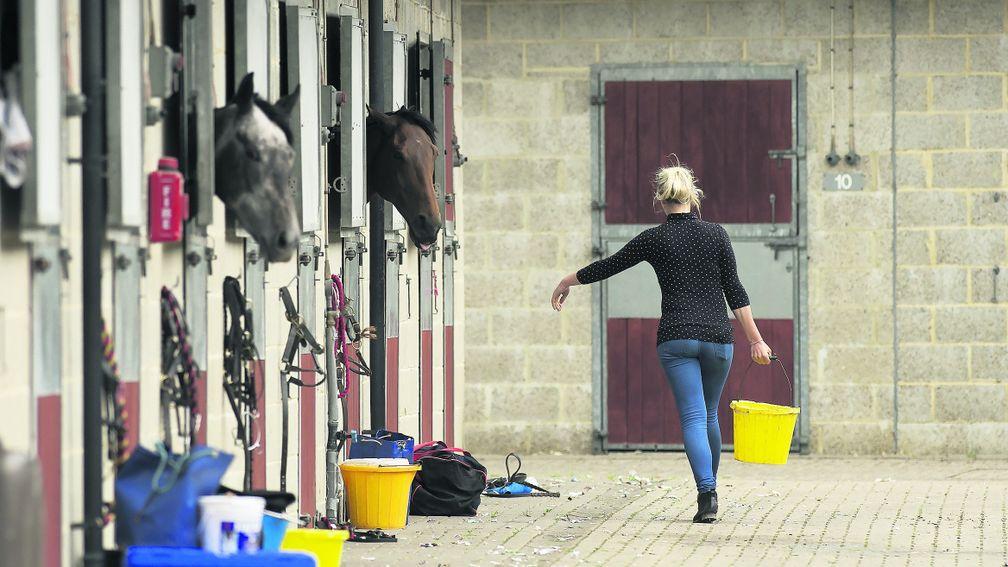
It is the issue that will not go away – a shortage of stable staff that was so acute some trainers were prepared to describe the situation last year as at crisis point.
The numbers of unfilled groom and work-rider vacancies were estimated to be up around 500 and those in work were said to be suffering from poor morale owing to low pay and long hours.
George McGrath, chief executive of the 6,000 strong National Association of Stable Staff, went as far as to say the picture was "the worst I've ever known it" because his members were having to ride more and more horses and look after more in the evenings.
Something needed to be done, and under a collaborative effort, marshalled by the BHA's director of people and development Carole Goldsmith, all parties have been working together on a raft of initiatives designed to help make the job of working in racing stables an attractive career choice.
Crucially for those already in the workplace the annual negotiations on pay and conditions between the National Trainers Federation and Nass last August concluded with stable staff being awarded a 5.5 per cent pay rise – well over the national average.
No-one expected a quick fix, but there are slightly encouraging signs after a rise in new joiners to the industry and a decline in leavers that suggests a workforce shortfall now at around 400.
What the data showed
In February the Racing Foundation published the findings of a survey, completed by 457 trainers and 936 racing staff, on recruitment, career progression and retention of those working in racing, which would provide the basis for a £1 million initiative it is funding to support the development and retention of racing’s workforce.
This highlighted the difficulties racing faced compared to other industries, with trainers saying nearly half of all jobs (48 per cent compared to 33 per cent nationally) were "hard to fill" because of a lack of skills and a low number of applicants mostly for jobs that required skilled riders.

Other factors cited were lack of experience, stable location or lack of accommodation, working conditions such as low pay and long working hours, and attitude or motivation issues.
Staff short of motivation was the reason cited by 29 per cent of trainers with retention difficulties and competition from other yards, but other factors included unsociable hours, low pay, lack of accommodation, homesickness and lack of transport or rural location.
Among staff 80 per cent said they were satisfied with their job, while 21 per cent were planning to leave the industry within two years and 31 per cent would like to train to start another career in a different industry. Staff that have been in the industry for 10 years or more tended to be less satisfied with their jobs than other staff.
What are the initiatives and what else is needed?
In order to try to address staffing issues the Racing Foundation is supporting a number of initiatives that will provide training for stable staff, a careers service, personal development training for jockeys and better careers marketing.
Around recruitment the BHA and Goldsmith's team have:
- Introduced courses targeting equine colleges and schools
- Revamped the careersinracing website, which has increased its popularity by 100 per cent, with 2,000 signed up to a regular newsletter
- Provided careers information to more than 10,000 schoolchildren through Racing To School
Aroundretention:
- The NTF is promoting on the job training for new entrants over 19
- Advanced training has been delivered regionally in yards by experts like Yogi Breisner
- The NTF is building a website, racinggroom.com, for staff that will be a one-stop shop and resource containing extensive information on how to get into racing, careers, training, and jobs. Staff will be able to interact through an online community which will will also provide access to a rewards programme which can be used towards discounted clothing, equipment and other products
- The role of BHA welfare development manager Matt Mancini has been expanded to focus on staff retention
- A pilot scheme trialled in Newmarket to help staff back into the workplace fit and healthy after accidents without relying on the NHS could be rolled out nationally in partnership with racing charities
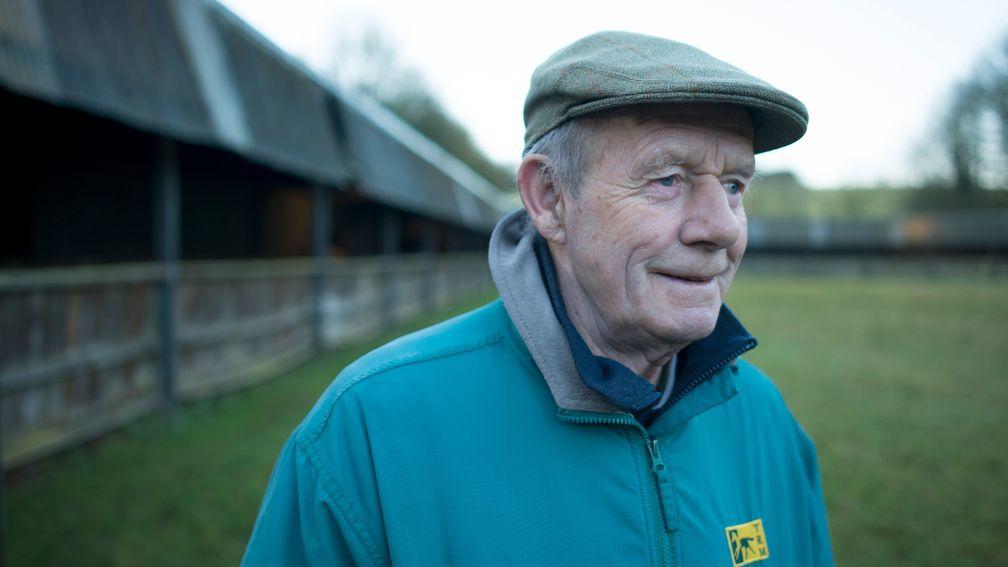
- The NTF and Nass have signed up to the Mental Health Charter
- The BHA announced it would no longer use job title stable lad or lass, which would replaced by staff or groom
- Racing Welfare is investigating possibility of building a hostel and of the Jockey Club providing dwellings for staff in Newmarket
- A pilot scheme is to be launched in Newmarket in September providing childcare spaces to enable young mothers to return to work funded by Racing Welfare. There will also be sports days in Middleham, Epsom, Lambourn and Newmarket, as well as golf days for staff
What will this achieve?
According to the BHA, greater focus on recruitment and retention has resulted in a 24 per cent increase in new joiners in a two-year period and a 13 per cent increase in under 19s.
Data gained through Weatherbys reveals there have been 1,367 new entrants in 2016, up from 1,095 on 2014. The number of leavers has fallen to 1,898 from 2,044 in the same period, and the industry accepts the impact will be felt in the medium, not short, term.
Goldsmith says: "We're comfortable we're going in the right direction, but this is never going to go away or be solved overnight.
"We've certainly put a lot of focus into improving all aspects of recruitment, training and retention and we're seeing results. We're certainly seeing more people coming into the industry, more younger people, so we're making progress.
"Like all industries, racing has to compete for people, especially young people, because the environment has become much tougher, with changes in attitudes towards work, government policy with the raising of the participation age and the funding cuts they make on things like training, which causes the British Racing School and Northern Racing College many challenges to continue the training they offer."
National Trainers Federation chief executive Rupert Arnold says: "The gap has started to fill up in a small way, not in a way that it has made a significant effect on the experience of trainers. The BHA numbers show it has improved.
"I don't underestimate how difficult it is for trainers. If there is a slight improvement I don't think the trainers' experience is any better, so we can't relax at all. It's a huge issue and we've got to be doing everything we can to show racing is an attractive place to work."

"It's certainly a medium-term strategy. The evidence shows we're being successful at raising the awareness of young people about the opportunities to work in racing. The BHA's figures on visits to the Careers in Racing website show we're getting in front of a lot more people.
"For that to feed through into well-trained people who can be effective in the yard, that's going to take time. One of the things that has really taken shape this year is, as well as having the industry strategy, we have all the component parts – trainers, racing schools, BHA, Racing Welfare, Nass – working collaboratively according to a plan."
The Nass wishlist
McGrath acknowledges that last year's pay outcome was "exceptionally good". He is preparing another wage claim for the next National Joint Council for Stable Staff Memorandum of Agreement. Nass is also seeking expenses for staff travelling to race meetings paid as overtime, which he says has become "a bad joke".
Where Nass has so far failed to secure NTF agreement is over time off, which in many stables totals one and a half days per fortnight, which he claims is "one of the biggest blockers to people coming into the industry".
"For the past two years at the NJC Nass have campaigned for more allocated time off for its members," McGrath says. "Unfortunately the NTF was unable to persuade its board to agree it and the reason given for this was that they just can't seem to get a one-size-fits-all.
"They didn't want something in the MoA that would be binding, bearing in mind the nature of the industry, with bank holidays, certain days busier than others, and it being impossible to anticipate where your horses are likely to be running."
McGrath adds: "I can't go to schools or speak to a young workforce who might be interested in coming into racing and say, 'You'll definitely get this amount of time off,' because there's no joined-up thinking. Each model is doing its own thing and none of it is mandated.
"We can do this, and the only thing stopping trainers is the fact that historically staff come back in the evening."
Will peer pressure do the job?
McGrath is not hopeful he can secure NTF agreement under which trainers would sign up to a working template that would provide more allocated time off within the working week of stable staff.
However, in the last 12 months a number of trainers, including some of Britain's biggest yards, have grasped the nettle and introduced more flexible working practices similar to those in place with Jeremy Noseda.
Noseda told the Racing Post last year how much of his yard work was completed by 12.30pm so only half the staff were needed in the evening one week and half the other. A staff member works mornings and evenings one week but only mornings the following week, which would include the Sunday off.
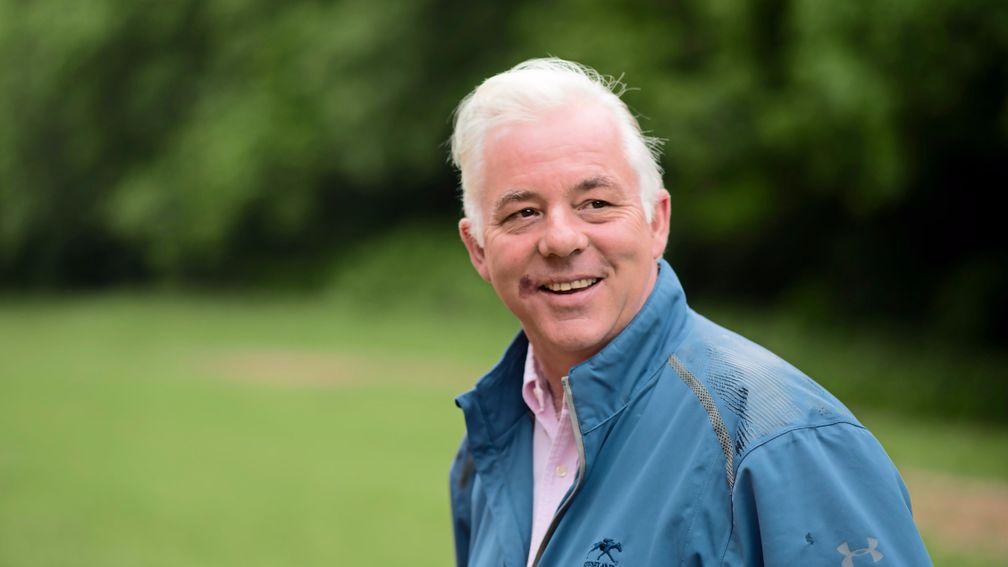
Among those operating similarly or have made changes are Mick Appleby, Alan Bailey, Andrew Balding, Luca Cumani, David Dennis, Harry Fry, William Haggas, Eve Johnson Houghton, Kerry Lee, Seamus Mullins, David Simcock and Dan Skelton.
McGrath said: "These things do work and we're slowly but surely beginning to see modern-day flexible working patterns being adopted by trainers.
"I can't overemphasise the issue of time off. In today's working society one and a half days off every two weeks is absolutely unacceptable. The society coming into the workplace today will not accept that.
"But when you have big trainers adopting modern working patterns and flexible hours it puts an enormous amount of pressure on colleagues, who equally need to attract staff, to offer the same working package."
Brexit bombshell or bonanza
Britain's exit from the EU could yet put further pressure on staffing, particularly if racing's EU staff, believed to represent at least ten per cent of the workforce, have to leave, but no-one is sure how it will look.
"A significant number of staff from the EU have asked me about this," says McGrath. "It's on their radar and I can't give them an answer."
Arnold says: "All the political signs are that the intention is for things to be the same the day after Brexit as the day before Brexit. I don't see a problem there.
"What we would be hoping for is a more unified immigration policy where there is an understanding of the needs of some businesses for people from non-EU countries. I think there is an opportunity."
Looking to the future
Following a reorganisation at BHA executive level Goldsmith will leave later this year, but she has secured a commitment from all sectors to work together to resolve an issue on which there will be no less focus.
Goldsmith says: "I'd like to think that, providing the plans we're putting in place continue and we get the right support and funding, we will be in a healthier position in five years' time.
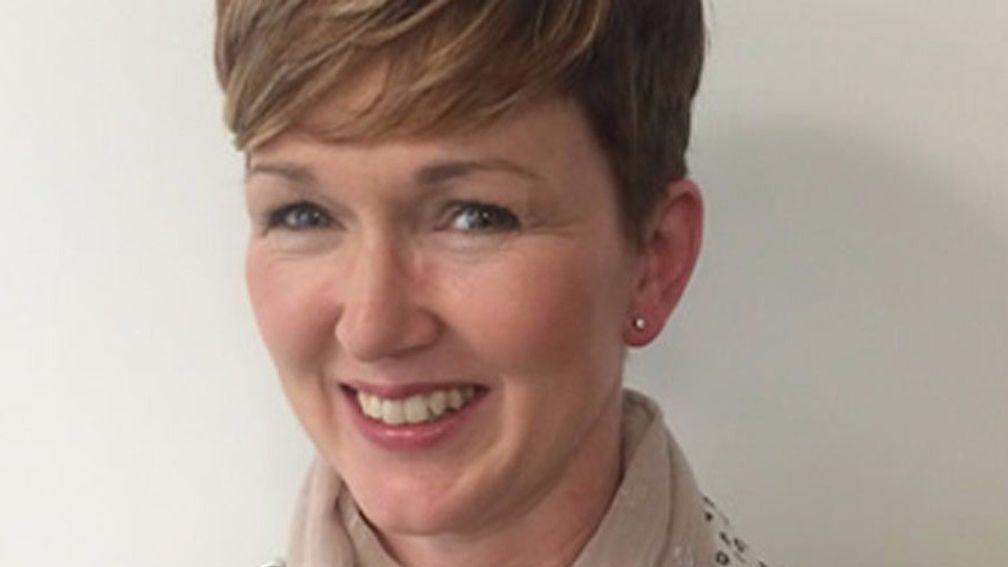
"Whether every trainer in the land be able to say, 'I've got everyone I need' is less likely. But I think we'll be in a healthier position providing this agenda continues and is properly funded.
"If I reflect over this year I'm most proud of the fact we've got a lot of collaboration among stakeholders and I'm told from those who have been around a lot longer than me that this is quite momentous."
Team Champion award to set standard
The National Trainers Federation is developing a set of standards designed to help members manage their workforce.
Similar to Investors In People, a recognised accreditation in the corporate world, it will be designed to show trainers examples of best practice towards the successful retention, motivation and engagement of their staff.
It will be launched this summer with the standard criteria being used to judge the new Team Champion award, which recognises the stable that has created the highest-performing team ethos, when it is presented for the first time in February next year.
'Real management policies'
NTF chief executive Rupert Arnold said: "The sort of things we are talking about are effective recruitment and employment systems; creating a positive working environment; personal and professional development and training of employees and reward and recognition.
"Within each of those it will set out what are the sort of real management policies you would expect a trainer to do to meet that reward and recognition standard."
Elaborating, he continued: "That could include the pay and conditions, non-financial rewards such as social activities for staff, provision of equipment and clothing, incentive scheme and pool-money criteria.
"We're not going to say to anyone, 'You meet the standard and you don't'. It's more a case of education. These things are proven to work in retaining staff, and by implementing some of these things they will begin to see the positive effects on their own staff retention.
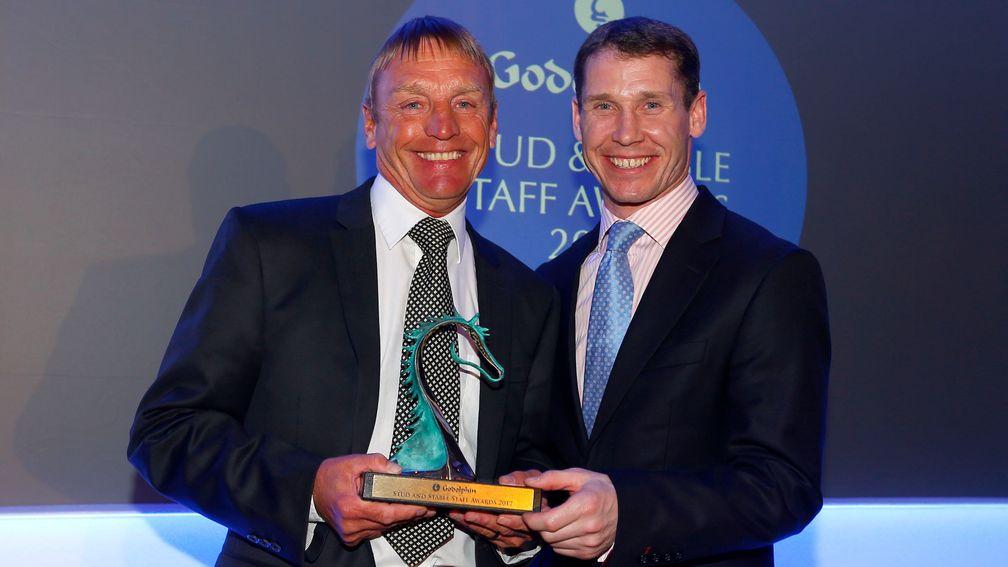
"Using it in conjunction with the Team Champion award will hopefully generate a bit of healthy competition to introduce these things and compete for some public recognition of what they are doing in terms of improving their staff management."
Arnold said a number of trainers were already meeting these standards. He added: "It's not just a way of trying to provide guidance to trainers who have very little formal management training. It's also about highlighting the people who are already doing these things very well. They see the benefits of it.
"From the point of view of recruitment as an industry, we want to be demonstrating to the outside world to potential recruits, parents, careers advisers and schools that racing provides a good working experience and we are putting in place things that help trainers provide that good working experience. Ultimately it has a positive effect on recruitment to the industry."
David Simcock has changed working patterns in the last 12 months to allow staff more weekend time off. Here he describes how it operates.
Staffing in training centres is extraordinarily competitive and probably now more than ever people have the chance to move from one yard to another.
Weekends become important to people and if they have two weekends off to look forward to out of three, so be it. We put it to the vote in the yard. It meant a little bit harder work and a bit longer hours on those weekends.
If it means another hour and a half at the weekend to provide the chance to go away with your families, that was our way to deal with it. We are trying to make the job more and more accommodating. It has worked very well.
My wife and I are very loyal to our staff and those loyal to us. I feel as employers we are very giving. We listen to people's problems, we deal with people's problems. If people have money issues we will help them out when we can.
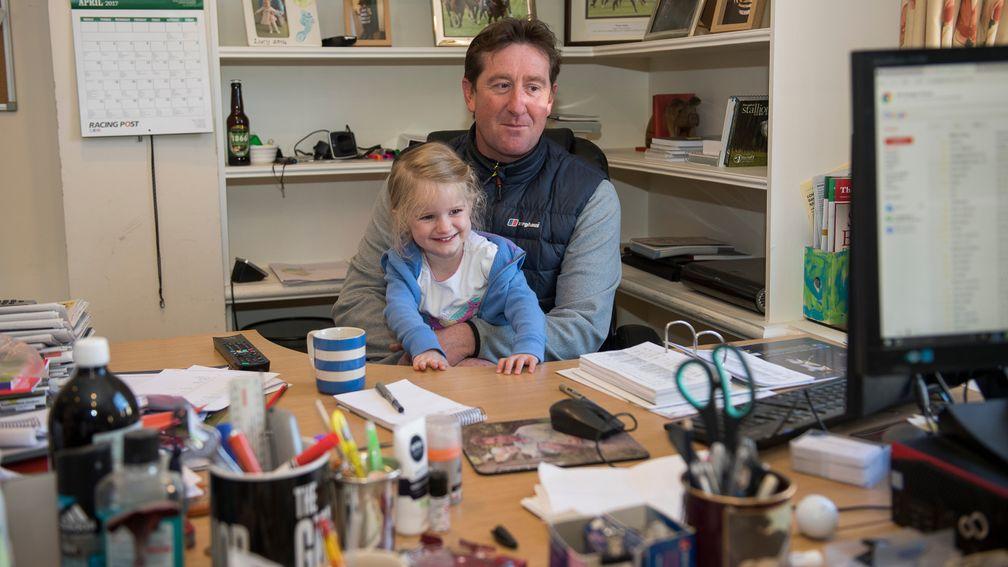
Sometimes people are after a better-paid job, but what you can pay them depends on what you are charging your owners. There is no margin in training. My personal income comes from trading in horses and the prize-money earned.
We have a very loyal core, and then the drifters, and the drifters will always drift. Sometimes people want to change for the right reasons. You say, 'Good luck and if it doesn't work out there's always a job here'. We've lost a lot of staff to Godolphin for the most obvious reason – they pay way in advance of what we pay.
But it is also easy for somebody not to turn in, go Awol or not do the job properly to go the next yard down the road to get another job.
'They have Sky TV in nice flats'
We're well staffed. We're in a very fortunate position in which we house 23 of our staff. They have Sky TV in nice flats. That's our selling point. We pay well but we don't pay as much as some yards.
I try to compare our industry with farming. It's a way of life: early mornings and you can be away a lot of time. Like milking cows, horses have to be fed, watered and exercised every day of the week. You have to be committed and probably people aren't as committed as they used to be.
The majority of employers have their staff's interests at heart. Sometimes a member of staff will come in and ask for a day off and I will be as flexible as I can. You try to make it as nice a working environment as you can.
From the days when I started, with the shouting and hollering, if I was out of line I could easily get a clip round the head. Those days are gone.
Published on 11 September 2017inNews
Last updated 10:09, 11 September 2017
- Merci Olivier! No final winner for Olivier Peslier but the world of racing unites in saluting the end of a great career
- The latest edition of the Racing Post is available to read online now - here's how you can access it
- How Smart View recorded a 76 per cent profit at the Cheltenham Festival
- Smart View is available on the Racing Post app - how to read the revolutionary new racecard
- Levy reform talks 'accelerating' as clock ticks down to April deadline for agreement
- Merci Olivier! No final winner for Olivier Peslier but the world of racing unites in saluting the end of a great career
- The latest edition of the Racing Post is available to read online now - here's how you can access it
- How Smart View recorded a 76 per cent profit at the Cheltenham Festival
- Smart View is available on the Racing Post app - how to read the revolutionary new racecard
- Levy reform talks 'accelerating' as clock ticks down to April deadline for agreement